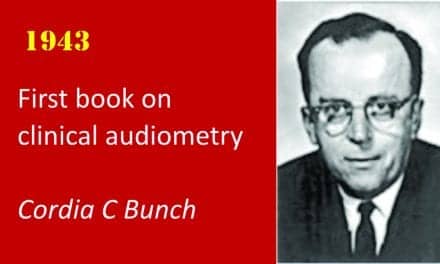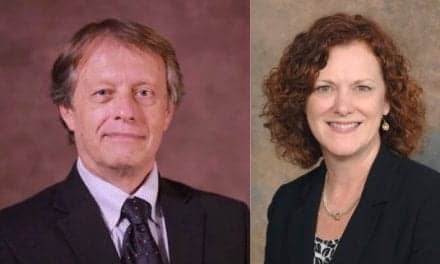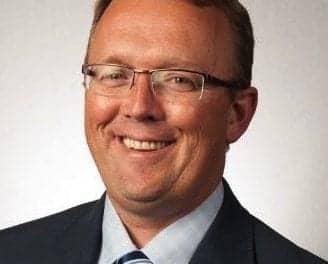By Karl E. Strom, editor-in-chief

[Click on images to enlarge.] Close to 1000 people, including Elite staff and industry personnel, made their way to Puerto Rico for the 3-day Elite Business Summit Meeting.
This was the first EHN event I’d ever attended (although I had heard about the event from many dispensers over the years). Elite, which is a part of the Amplifon group (including Sonus and Miracle Ear in the United States), was spun off from Sonus in 1998 and now encompasses about 1500 offices, according to the company. Besides a focus on the EHN offerings, the Business Summit also showcased EHN’s partners: some the industry’s most prominent hearing aid manufacturers, special equipment suppliers, and service providers. In particular, these partners took the spotlight during the opening day (Thursday morning), and at a 3-hour jam-packed trade show Thursday evening. An abundance of special events, as well as daily breakfasts, lunches, and dinners also provided for excellent networking opportunities for both attendees and exhibitors.
A different vibe. Generally speaking, the EHN is a group of savvy hearing care professionals who understand both the clinical and business sides of dispensing, because most have been “in the business” for decades. I’m not sure what the actual percentage is, but it seemed like an unusually large number of professionals I spoke with at the Summit own more than one practice—and this provided an interesting and slightly more positive spin on dispensing than the typical narrative I’ve been hearing (ie, panicky concerns about waning average sales prices (ASPs) and profit margins). And, while there was plenty of talk about these issues, this group appears to be doing better than most, which is what the most recent Hearing Review dispenser survey and special events also suggested: Efficiency, economy of scale, and an instinct for differentiation and opportunity are key drivers in today’s highly competitive hearing care market.
Operational Efficiency. The central theme of the Summit, “Make the Connection,” focused on the need to increase the operational efficiency of your practice. Amplifon Executive Vice President (Americas) Heinz Ruch presented a persuasive case for improving key performance indicators (KPIs) in modest and achievable increments—eg, a greater efficiency in leads converted, closing rates, reduced return rates, etc—and how this can yield huge positive results, and even a doubling in revenues. He noted that improving KPIs, even modestly, requires discipline, adherence to office protocols, and focused training of the professional staff and patient coordinators. And above all, it requires measurement of KPIs so the owner/manager understands where leads come from, gets an accurate picture of the sales and revenue “funnel,” and can assess the satisfaction level of patients.
Elite Hearing Network Vice President Paul Harkness then introduced the company’s Platinum Program that features KPI dashboards, drawing data from a practice’s office management system (eg, Sycle.net and eventually other services like Blueprint, etc) for easy analysis and tracking. The Platinum Program is also designed to give members customized insights and allow for more “non-emotional, non-gut-feel” decisions, says Harkness. EHN staff members will also be available to help customize and, when asked, provide solutions that (as Ruch alluded to) might entail operational adjustments that potentially yield large positive increases in revenues.
What practice owners and managers ultimately do with the information from the Platinum Program is their business, says Harkness. He emphasized that the program was devised as a tool to see how your business stacks up against other similar practices in the Elite network, and to quickly pinpoint opportunities for improvement or action items. He said the new system is meant for advisement, and not admonishment—or force-feeding solutions on owners/managers.
The Platinum Program had a soft rollout about 6 months ago and was launched at this year’s Summit. More details about the program were also provided at several of the special sessions that focused on topics like business intelligence, protocols for success, digital marketing strategies, human resources recruitment and performance, and front office best practices.

The Manufacturers’ Panel was moderated by Harkness and made up by (l to r) Jeff Newnham (Phonak); Peer Lauritsen (Oticon); Jason Mayer (Unitron); Ron Gleitman (Siemens); Tom Woods (ReSound); Jeff Geigel (Widex); Jerry Ruzicka (Starkey); and Heinz Ruch (Amplifon).
Manufacturers’ Panel. One of the highlights of the meeting was a lively Manufacturers’ Panel that featured comments from many of the top hearing aid manufacturers, including presidents and high-level executives of Phonak, Oticon, Unitron, Siemens, ReSound, Widex, Starkey, as well as Amplifon. The panel fielded questions from the audience via text messages, and the issues ranged from new upcoming technology, the shortage of hearing care providers, how to compete against Big Box retail, online Apps and patient fitting control, and creating greater hearing healthcare awareness. A summary of this discussion will appear in an upcoming Hearing Review article.
Other notes
- It was announced that long-time industry leader Paul D’Amico is retiring from his post as a VP at Amplifon. Paul has been a driving force in the success of Amplifon in the United States and has been an important pillar of the company’s executive team for over 20 years. He retires as Vice President, General Services, a position that included overseeing all of the past Elite Hearing Network Summits.
- The Summit started on Thursday with an early breakfast followed by an entire morning of 20-minute updates from leading manufacturers and suppliers, including Phonak, Widex, Siemens, ESCO, Unitron, Oticon, Starkey, Rexton, CareCredit, and HyperSound. This was a great way to get updated on new technology—and see just how good a speaker can be when doing his/her 10th consecutive speech on their topic! Kudos to all of them.
- A charity scavenger hunt garnered $37,000 from participating EHN members, as well as $6000 contributions each from Amplifon, Sycle.net, Oticon, Starkey, and Widex. The money was presented to the Puerto Rico National Guard’s Youth Challenge Academy and was accepted by Col Marta Carcana.
- Susan Scott is the new director of marketing for Elite. Sue is a long-time hearing industry expert who had worked as a marketing manager at Bernafon-Maico (when the then-combined company manufactured hearing aids) and GN ReSound for many years. She came back to the hearing industry a few months ago after working in the uniform supply field in Minneapolis.
- Rodney Schutt, former president of Unitron and Widex, is now the senior VP and GM of HyperSound, La Jolla, Calif, which has developed a highly directional microphone system that directs sound to a specific location for TV listening (eg, a favorite living-room chair). It is also programmable to the user’s hearing loss and hearing aids. He was demonstrating HyperSound on the very noisy exhibition floor, and it was quite impressive.
- Next year’s 2016 EHN Business Summit will be held one week later than this year’s event. It takes place on February 3-7 at the Fiestamerica in Cancun, Mexico.








